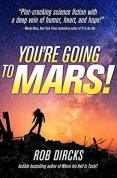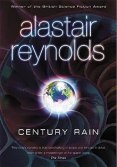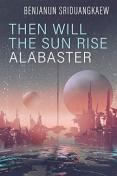Andreas Rosboch's Blog, page 11
August 16, 2020
Destined for War: Can America and China Escape Thucydides’s Trap? – Graham Allison

In this non-fiction treatise, Harvard international relations expert Dr. Allison analyses the brewing great power contest between the United States and China. He starts with the work of classical historian Thucydides, who argued that the Peloponnesian War in the 4th Century BC was an almost inevitable consequence of a rising power challenging the status quo embodied by a the dominating power at the time. Dr. Allison uses a variety of similar situations in history, including the lead up to World War One, as well as the Cold War between the United States and the Soviet Union, to discuss the consequences of such conflicts, and how they can be avoided.
The book is a fascinating look into how powers may find war unavoidable, even though it is against their interests, if they do not take action to move beyond attempting to maintain the status quo. There is also an in-depth discussion about the fundamental differences between Chinese and Western culture, importantly including the concepts of governance. Unfortunately, these particularities and differences do not seem well understood in the West.

July 29, 2020
You’re Going to Mars – Rob Dircks

Paper Farris has grown up in Fill City One, an industrial complex extracting goods and fuel from a monumental landfill. She is third generation, her grandmother having signed the family into indentured servitude for eight generations. Meanwhile, an eccentric triillionaire is funding a manned mission to Mars, and offers one spot to the winner of a reality show. To gain a spot on the show, a contestant must participate in a lottery, the tokens for which are in the form of a Scarab. But even if could get hold of one, “Fillers” such as Paper may not leave their cities.
Mr. Dircks has crafted an interesting and fun adventure. Paper Farris is a likeable heroine who is easy to root for, flaws and all. The world is clearly a dystopia, and the reasons it became one are a clear commentary on developments in today’s world. The science and technology elements were something of a let down. While some handwaving was needed to incorporate the McGuffin, a minimum of changes would have made the rest of the techie bits far more realistic.

July 16, 2020
The Span of Empire (Jao III) – Eric Flint & David Carrico

Caitlin Kralik leads an exploration fleet looking for new allies against the Ekhat. In a bold move, they travel to another galactic arm, finding a civilisation xenophobic and isolationist to the extreme. Making peaceful contact proves tricky. Meanwhile, the Ekhat are plotting the final destruction of the Jao.
Just like in the earlier books, the characterisations of varied races that have found a way to work together is excellent. The various mannerisms of the Jao, the Lleix, and now the Khûrûsh, are fascinating and intricate. While this is clearly military science fiction, the characters are at the forefront at all times. The poetic nature of the Khûrûsh is mentioned as an analogue to Japan prior to the Meiji Restoration. They Khûrûsh also reminded me of Klingons, but of course many aspects of Klingon culture are modeled after Japanese stereotypes.
The extensive parts of the novel that dealt with the Ekhat, while well written, were not nearly as good a read, and the resultant actions did not seem to affect the protagonists beyond the basic outline. The fundamental “unsanity” of the Ekhat was clearly on display, however.
Sadly, K.D. Wentworth died of cancer after writing a few chapters of this book. Mr. Carrico ably took on the task.

June 30, 2020
Winds of Wrath (Destroyermen XV) – Taylor Anderson

Following immediately after the events of Pass of Fire, Winds of Wrath first describes the final battle against the Grik. Somewhat unexpectedly, the story then carries on to the American front, as the Allies move towards the very heart of the Dominion, and must deal with the modern League expeditionary force in the Caribbean.
The writing, battle scenes, and character descriptions are as good as ever in the series, and it was a pleasure to read the book. I was unfortunately disappointed by how rapidly Mr. Anderson decided to wrap up the series. Plot threads landed at logical and satisfying conclusions, but it all felt rather rushed, as if the material for two or even three books was mashed into one. Major events involving major characters were often given a two-sentence flashback as the story rolled right on past them. The death toll also seemed particularly high, even by the standards of this series, but not for the right reasons. It was almost as if Mr. Anderson decided that since the final battles were so important, many of the main characters had to die arbitrarily in order for the stakes to seem high enough. The interlude on the home front seemed tacked on for dramatic effect and did not add to the story at all.
I have loved this series from the first book, and while I enjoyed this final instalment, and it gave me closure, so to speak, it was also something of a letdown to see things get wrapped up in such a rushed fashion.

June 8, 2020
Starsight (Skyward II) – Brandon Sanderson

Several months after the events of Skyward, the defiant humans of Detritus have gained a foothold on the orbital platforms surrounding the planet. Hyperdrive is a still a mystery, so they’re strategically stuck, with little intelligence about the Superiority which is keeping the humans trapped. One day, a mysterious ship carrying a previously unknown humanoid alien crash lands on Detritus, and Spensa must quickly set off on a covert infiltration mission she is ill-prepared for, to the enemy settlement of Starsight, a major Superiority settlement.
The bones of the story are fine, and carry the main arcs of both Spensa herself and the conflict forward. However, the books seems to drag for much of the middle. Interesting events occur but the pace is off, with perhaps too much exposition about Superiority politics and how they have led to this. The final section picks up, however, with a satisfying and action-filled conclusion.

May 20, 2020
Skyward (Skyward I) – Brandon Sanderson

Spensa Nightshade is the daughter of a traitor. In a pivotal battle, her father, an accomplished fighter pilot, inexplicably turned on his comrades. And her family have been branded ever since. Exiled in the caverns of the planet Detritus, the remnants of humanity fight a seemingly unwinnable war with the enigmatic Krell, who regularly launch incursions from a shell of debris closing off the stars from view.
At seventeen, it is time for Spensa to find a profession, and she has always known what she wants to be. A fighter pilot, like her father. Despite almost insurmountable obstacles set in front of her because she is the daughter of a traitor, she might just get her wish.
Spensa is a rebellious teen, lashing out at everyone, but stubborn, brave, hardworking and determined. An interesting protagonist that the reader is almost immediately rooting for. Her inner and outer journeys as the novel progresses are arduous and nuanced. The worldbuilding is excellent and believable. The same can be said for the technological aspects. While the aerospace technology and battles are rather fanciful, they are well thought out and internally consistent. There is no deus ex machina saving the day, but a logical and well-constructed plot. Mr. Sanderson builds up tension brilliantly, with the final battle a breathtaking climax.

May 18, 2020
The Cruel Stars (The Cruel Stars I) – John Birmingham

Centuries previously, humanity fought a civil war. As technology progressed, genetic alteration and cybernetic augmentation of the body became commonplace. Humans started transferring consciousness to new bodies, and even to machines, allowing practical immortality. A faction known as The Sturm saw this as abhorrent, fanatically advocating “racial purity” and wishing to exterminate the “mutants” from the human race. The war against The Sturm was won at a terrible cost, and they were exiled, not to be heard from again. Until now.
The protagonists are several, all interesting in their own right, with rich backstories. Each of them could have been the subject of his or her own novel. Naval officer Lucinda Hardy is a successful professional who lifted herself up from abject poverty in a society ruled by an aristocratic elite, and is now unexpectedly in command of the frigate Defiant. Pirate Sephina L’Trel is a charming rogue. Death row convict Booker was a terrorist. Corporate Princess Alessia has lived a sheltered life which is suddenly upended in the worst possible way. And finally archaeologist Frazier McLellan, previously Fleet Admiral McLellan. A most cantankerous, ill-tempered, foul-mouthed, hilarious and very endearing old coot.
The parallels to the Nazi regime and ideas of racial purity are explicitly referenced in the book. The Sturm invasion leads to an existential struggle, as the Sturm use the very characteristics and strengths of mainstream human society against it in their initial surprise attack. Mr. Birmingham has a fine gift for snappy dialogue and humour. I found myself laughing out loud many times, especially during McLellan’s arguments with Herodotus, a former military AI and his companion. Despite some misgivings in the first few chapters, as more and more new characters, seemingly unrelated, were introduced, the story came together well, with rapid, page-turning action sequences.

May 11, 2020
Century Rain – Alastair Reynolds

In Paris in 1959, private investigator Wendell Floyd is retained to look into the mysterious death of an American woman. In a parallel story thread set hundreds of years in the future, archeologist Verity Auger comes upon a strange map of twentieth-century Paris, with missing details. Is this the same Paris as the one in her history?
The parts of the story set in 1959 Paris, clearly inspired by Casablanca, read somewhat like the plot of a classic detective noir film. The old flame. The gumshoe detective. The uncomfortable relationship with the police. The rain. It is utterly charming and nostalgic. The parts of the story set in the future are pure Reynolds. Unfortunately, they don’t always mesh well. Mr. Reynolds has come up with a fantastic premise, but perhaps due to the setup, the conclusion feels somewhat forced, though the actual ending is quite satisfying. I felt as if the book was perhaps overlong, and some plot aspects which were not revealed until the last third, seemed overly complex.
Nevertheless, Mr. Reynolds’s marvelous prose and rich, three-dimensional characters are always enjoyable.

April 14, 2020
Then Will the Sun Rise Alabaster – Benjanun Sriduangkaew

Young nun Sister Josephine is confined to her convent, her life unremarkable and regimented. She was orphaned as a young child, even her birth name taken from her. Any semblance of individuality and freedom was beaten out of her through physical and mental abuse. She has now accepted that this will be her life. Almost. Until one day, a member of the Church’s warrior class comes to the monastery. And everything changes.
This short story is intense. The desperation of a soul about to lose herself is keenly fell but the reader, making the explosiveness of the denouement that much more impactful.

April 12, 2020
Frozen Orbit – Patrick Chiles

The unexpected firing of Russian missile defence systems at what turns out to be a spacecraft returning from the outer solar system sets off alarms at NASA. Two years later, the Magellan II mission to Pluto sets off to unravel the mystery.
The story is ambitious, casting threads back in history to the end of the Cold War, with a top secret Soviet space project as bonkers as it seems weirdly plausible, making it a fantastic hook for the story. The protagonists are the four crewmembers on the spacecraft Magellan, finely crafted and believable, down to their intelligent and meandering debates on (and with) AI, and regarding the meaning of life. The technical aspects are nicely lacking in logic holes, a must for a novel of this kind.
I very much enjoyed this near-future space adventure. Like any good technothriller, it was hard to put down. Unfortunately, some plot points, such as the expanded use of the hydroponic garden, went from seemingly very important to unresolved later in the book. This left the reader with some disjointedness, though to clear the overall story was paced very well, with an unexpected but logical ending.
Plus I’ve never heard a pilot call the control column a “joystick”, but now I am nitpicking.




